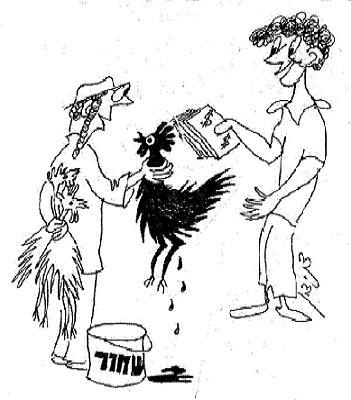
The sages prohibited a Jew from selling to gentiles those items and foodstuffs which they customarily used for religious purposes (idolatry). Thus, for example, they were forbidden to sell a white rooster (sacrificed in religious rituals) to a gentile, but a black or red rooster may be sold. Similarly, one may sell a rooster which is missing a claw to a gentile. (According to the Talmud, the gentiles only use whole white roosters in their religious rituals.)
One of the sages asked: what is the rule if a gentile wants to buy a white rooster which is missing a claw? Is one permitted to sell a rooster, even whole? The very fact that the gentile asks to buy a rooster with a missing claw shows that he does not wish to use the bird for a religious ritual. On the other hand, perhaps he is trying to trick the Jew. Since he knows that Jews will not sell him a whole bird, he fools them with his request, hoping to actually buy a whole bird for idolatrous purposes. On that same topic another question was asked: a gentile requested a white rooster, but when he was offered a red one agreed to purchase it. He was then offered a black rooster and again he consented to purchase it. Is one now permitted to sell him a white rooster? The fact that he agreed to buy a red rooster and a black one shows that he is not buying for idolatrous purposes, but he might be tricking the Jewish seller, and then one is certainly forbidden to sell the white rooster to him.
(These questions were not settled in the Talmud.)
(Babylonian Talmud, Tractate Avodah Zarah 14b)
